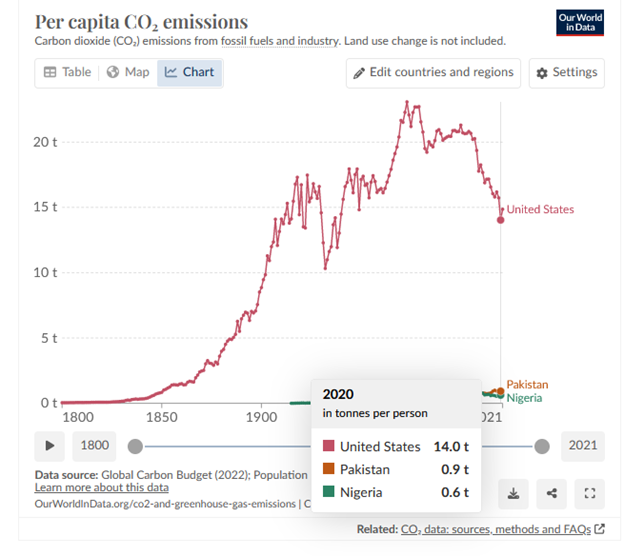Two years ago, I wrote an article called Waiting for Bigwig, using the archetypal rabbits from Richard Adams' 1972 novel Watership Down to explain the power dynamics of the climate crisis. "Watership is an ecological novel," I said, "for it is ultimately about the ruin humans bring when they collide with a purely natural environment."
I wrote this in late 2021, right before COP26 (the annual UN Climate Change Conference or Conference of Parties). I felt, and still do, that we have as many Fivers (people crying harm! foul!) as we need.
"…at this point, diagnosing the problem is the easy part. Anybody who doesn't recognize it now simply does not want to hear, to know, or to understand."
Author, Waiting For Bigwig
I was hoping that (praying that!) somebody would emerge to take leadership and direction (like Hazel), and even more, that someone strong and compelling would force the world to take action during COP26 in Glasgow, insisting that our leaders prioritize the Paris Agreement with goals of limiting global warming to well below 2°C above pre-industrial levels, shooting for a limit of 1.5°C.
In Watership Down, rabbits are the perfect prey animal — and their only advantage is the speed with which they recognize danger and run away. That's to their advantage. But we humans aren't like that at all.
I was a lot (a lot, a lot) more optimistic a few years ago, than I am today. The 2023 COP 28 starts on November 30, and all the world's leaders will jet off to the UAE to take stock of the worldwide effort to reduce (eventually eliminate?) use of coal, oil and natural gas. Yes, this will take place in the UAE, a country pretty much ruled by oil interests, that is, in fact, allowing oil interests to influence the conference. (What could go wrong?)
COP 28 will also face an uphill battle in gaining public attention. Nowadays, there's almost no topic the public wouldn't rather consider than climate change, for instance:
- Ukraine. Also Israel and Palestine. Not to even mention Syria, Yemen, Ethiopia, Sudan, and…how can we even keep up?
- U.S. House shenanigans over the debt limit and George Santos
- Joe Biden's age and Donald Trump's ever-worsening psychoses
- Ozempic face
- Anything about Taylor Swift
- Evergreen culture war wedge issues (e.g., abortion and LGBTQIA+ rights)
And I'm not saying these things are unimportant. They matter, they do.
But this year is about to become the hottest year ever. We are not even coming close to meeting Paris targets. More and more, I feel we humans are prey to our habits of consumption — at least those who have privilege enough to consume — and then sticking our heads in the rabbit hole, trying to ignore the danger.
And getting back to the rabbits…
As I continue waiting for Bigwig, I find myself considering that some humans are at a distinct disadvantage as developed and developing nations count their carbon.
Here's a feminist critique of one of my favorite books:
The 1993 Puffin Modern Classics edition of the novel contains an afterword by Nicholas Tucker, who wrote that stories such as Watership Down "now fit rather uneasily into the modern world of consideration of both sexes". He contrasted Hazel's sensitivity to Fiver with the "far more mechanical" attitude of the bucks towards the does portrayed as "little more than passive baby-factories."
In Watership Down, there are few "speaking" female characters. When they show agency, it's in service to a male leader or buck (like Hazel or Bigwig or General Woundwort) — and with the motivation of making good homes for their future kits.
They don't have much to do with the action, and their feelings aren't important. (Which is odd because Watership Down was published at the height of 2nd wave feminism.) But the does aren't starting battles either. They are not causing any of the problems.
There's an analogy here, and it is not pretty.
Developed nations burn carbon and fight, while developing nations burn almost no carbon…and suffer the worst consequences from climate change. For example:
- From June to October 2022, floods in Pakistan killed 1,739 people, and caused $14.9 billion of damage and $15.2 billion of economic losses.
- Nigeria, is in a long-term drought, causing staggering forest loss — 4% every year.
- The historic drought and famine in Kenya, Somalia and Ethiopia have killed tens of thousands, along with millions of farm animals.
And have a look at how some of these nations' per capita carbon use compares to ours in the U.S.:

These nations (and many more like them) reap none of the benefits of carbon use (fast cars! luxury goods! fabulous vacays!), and a disproportionate share of the costs. Up until recently, they've kind of been dragged along for ride. We in the west have put them to use like baby-making does, relying on them offset our carbon use, relying on them not to industrialize and use more greenhouse gasses.
We've been depending on them to stay quiet about it too.
But these disenfranchised rabbits have been finding their voices in recent years. They have been tensely negotiating a "Loss and Damage Deal" with rich nations like the U.S. and the E.U. and there is expectation that a loss and damage fund for these countries will be officially adopted at COP 28. Grudgingly.
This may mean some compensation for their injuries, help to rebuild their crumbling warrens.
There are many question about how big the fund will be, how generously it will be funded. And some nations like China and India, seem to feel they shouldn't have to pay as much. Believing, perhaps, that their societies have enjoyed the benefits of industrialization and carbon use for a shorter period of time than others.
It's all very complicated. But I'm taking hope in these smaller nations, and their demands. I don't think they're Bigwig, mind you, but there is power in saying: "Look at what you did to us! You need to make this right!"
There is real justice their holding our feet to the fire, insisting that if they carry our load, we at least have to pay.
I don't want to torture a metaphor. But Watership Down was about the search for the perfect society. One that lived in peace, in a beautiful place, with all of the needful resources at hand. We're not going to get that anymore, none of us, not unless we force some real and lasting change.
And as always, some of us will suffer more. Some animals are more equal than others, I suppose. But that is another story.


